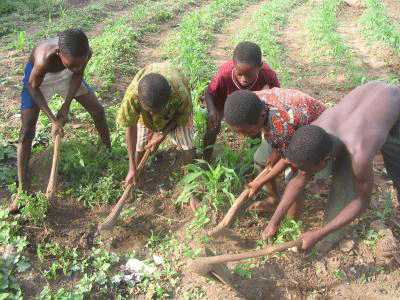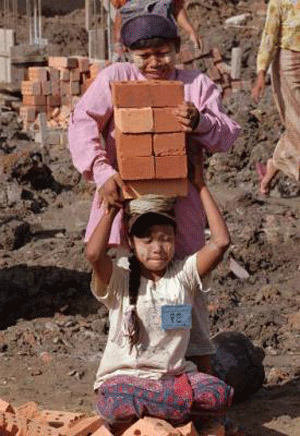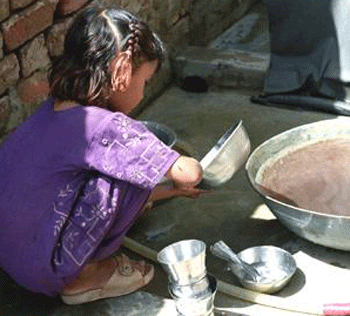
The Dutch government is leading efforts to end child labor. Globally, more girls are in household work than in any other sector of child labor.
The Hague Global Child Labor Conference, scheduled to begin May 10, 2010, will bring together over 80 governments to seek stronger commitments to end the worst forms of child labor by the year 2016. Globally, the largest numbers of child workers are found in so-called “informal labor,” particularly domestic work and agriculture.

In June, members of the International Labor Organization (ILO) will begin negotiations in Geneva on new global standards for domestic workers. An ILO survey of 90 governments last year found that two-thirds supported a legally binding treaty for domestic workers. However, the Dutch government was among a minority that favored an instrument that would not be legally binding. A two-thirds vote is needed for a new treaty to be approved.
Tens of millions of women and girls are employed as domestic workers, making up 10 percent of total employment in some countries. Girls often enter domestic work to contribute to their families’ income, or because the costs of schooling have forced them to abandon their education.

Human Rights Watch investigations have found that child domestic workers often work more than 12 hours a day with little rest. Hidden in private households, they may be subject to a shocking array of abuses, including physical and sexual violence. Some children are locked in their employers’ homes and denied contact with their families. Many are not allowed to attend school.
No existing international labor conventions specifically address working conditions for domestic workers. National laws often exclude domestic workers from key labor protections, denying them the right to a minimum wage, rest days, or annual leave.
On May 9, global experts on child domestic labor will speak in the Hague, including Lilibeth Masamloc, who began working as a domestic worker in the Philippines at age 13. Masamloc often was expected to work from 4 in the morning until 10 or 11 at night, for wages of less than US$20 per month.

Human Rights Watch is calling on all members of the International Labor Organization to support a binding convention on domestic work that will include specific protections for children. In particular, the Convention should:
Prohibit domestic work before age 15;
Ensure that the working hours of child domestic workers ages 15 to 17 are limited to ensure adequate rest and leisure activities, and to allow for school attendance and contact with their families;
Ensure that all domestic workers, including children, enjoy equal rights to a minimum wage, periods of daily and weekly rest, annual leave, and other labor protections;
Require effective mechanisms to monitor the well-being of child domestic workers and to remove those that are underage or subjected to abuse.
Bron : http://www.hrw.org/




